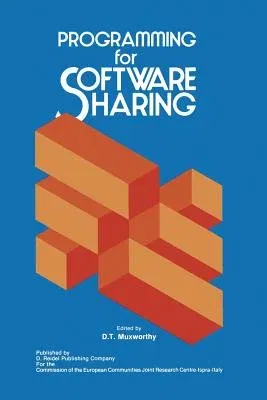Programming for Software Sharing (Softcover Reprint of the Original 1st 1983)Paperback - Softcover Reprint of the Original 1st 1983, 4 November 2011

Qty
1
Turbo
Ships in 2 - 3 days
In Stock
Free Delivery
Cash on Delivery
15 Days
Free Returns
Secure Checkout
Part of Series
Ispra Courses
Print Length
300 pages
Language
English
Publisher
Springer
Date Published
4 Nov 2011
ISBN-10
9400971478
ISBN-13
9789400971479
Description
Product Details
Book Edition:
Softcover Reprint of the Original 1st 1983
Book Format:
Paperback
Country of Origin:
NL
Date Published:
4 November 2011
Dimensions:
23.39 x
15.6 x
1.57 cm
ISBN-10:
9400971478
ISBN-13:
9789400971479
Language:
English
Location:
Dordrecht
Pages:
300
Publisher:
Series:
Weight:
417.3 gm

